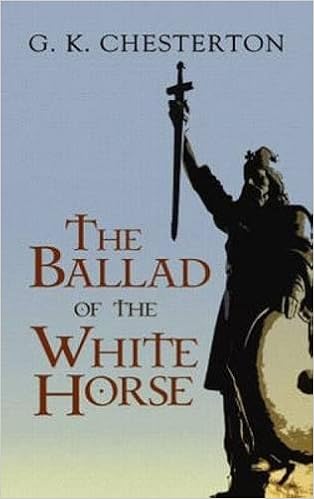 The Ballad of the White Horse by GK Chesterton, 154 pages
The Ballad of the White Horse by GK Chesterton, 154 pages
Chesterton's remarkable epic poem takes as its subject the legendary history of King Alfred - the great king of Wessex who defeated the Danes at the battle of Ethandune and drove them from the south of England. Chesterton celebrates this as a triumph of Christian civilization over a barbarous paganism, but he also understands that all such victories are provisional (and providential), for the barbarians always return, like grass on the chalk horse.
And all the while on White Horse Hill
The horse lay long and wan,
The turf crawled and the fungus crept,
And undid the work of man.
Yet this is not fatalism, for it is the fatalism of the pagans that Chesterton denounces as nihilism.
'What have the strong gods given?
Where have the glad gods led?
When Guthrum sits on a hero's throne
And asks if he is dead?'
He suggests that such is always the result of attempts to know - and thus control - what is to come.
'The wise men know all evil things
Under the twisted trees,
Where the perverse in pleasure pine
And men are weary of green wine
And sick of crimson seas.
'But you and all the kind of Christ
Are ignorant and brave,
And you have wars you hardly win
And souls you hardly save.'
And with Alfred's voice he directs every generation to the necessary work of recovery.
'And though the skies alter and empires melt
This word shall still be true
If ye would have the horse of old
Scour ye the horse anew.'
No comments:
Post a Comment